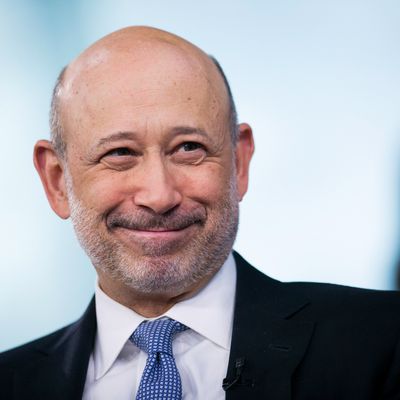
Bankers aren’t like the rest of us. They are more dishonest.
There’s ample anecdotal evidence for this idea, of course: the foreign-exchange rigging scandals, the interest-rate rigging scandals, the commodity-price rigging scandals, the insider-trading scandals, the abetting of tax evasion, the coziness with regulators, ad infinitum.
But the hard evidence comes from an astonishing new study of ethical behavior published in the journal Nature. In it, Alain Cohn, Ernst Fehr, and Michel André Maréchal of the University of Zurich found that bankers started cheating when prompted to remember that they were bankers. It suggests that something is rotten, deeply rotten, on Wall Street — and that financial firms should do more to promote honesty and transparency among their employees.
In the study, the researchers took 128 bankers and split them into two groups. The first group was reminded of their role in the banking industry before the experiment. During a quiz, questions like “At which bank are you presently employed?’’ or ‘‘What is your function at this bank?’’ came up. The other group also took a quiz, but it did not contain questions about the participants’ careers. Instead, they responded to queries like, ‘‘How many hours per week do you watch television?’’
Then both groups of bankers played a coin-flipping game. For ten rounds, the study organizers named heads or tails as the winning face. The study participants would then flip their own coins and report whether they won. Each successful toss was worth about $20.
The researchers created a strong incentive to cheat. Nobody was watching whether the subjects were actually coming up with heads or tails; it was easy to lie. On top of that, “subjects were informed that their earnings would only be paid out if they were higher than or equal to those of a randomly drawn subject from a pilot study,” said the paper. “We introduced this element to mimic the competitive nature of the banking profession.”
As you would expect — according to the statistical odds, at least — the control-group bankers won just about half of their coin tosses. But the bankers reminded that they were bankers won nearly 60 percent. About one in four of them cheated, and far more of them improbably said they got all ten coin-flips right.
Did reminding people of their professional affiliations have the same effect in other industries, the researchers wondered? Nope. They reran the experiment with workers in manufacturing, pharmaceutics, telecommunications, information technology, and so on. The nudge did not increase cheating. Maybe the mention of banking reminded participants of money and competition? Perhaps non-bankers would cheat more if prompted to think about finance? That idea did not pan out either: Students asked about banking were not more dishonest than a control group. It was just the bankers that went weird.
Notably, the implication is not that banking attracts dishonest people, or that all bankers are crooks, the authors argue. Bankers who were not prompted to think about banking did not end up cheating on the game, after all. The implication is subtler, they argue: that “the prevailing business culture in the banking industry weakens and undermines the honesty norm.”
But the authors suggest a few ways to help tamp down on dishonest behavior in the financial industry. “Banks should encourage honest behaviors by changing the norms associated with their workers’ professional identity,” they write. They could have employees take a “professional oath analogous to the Hippocratic oath for physicians,” add further ethics training, and remove financial incentives that reward employees for cheating or lying.





























